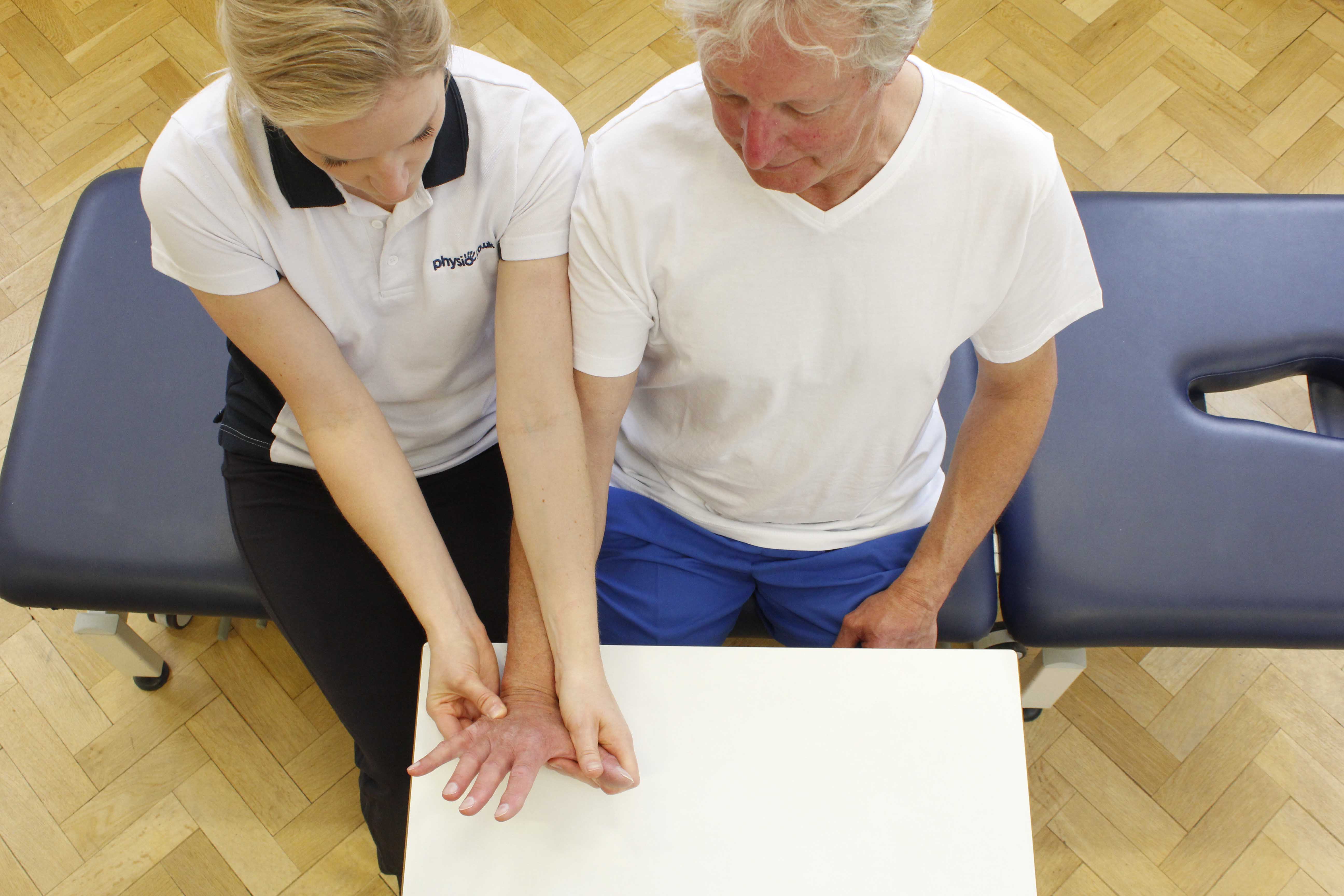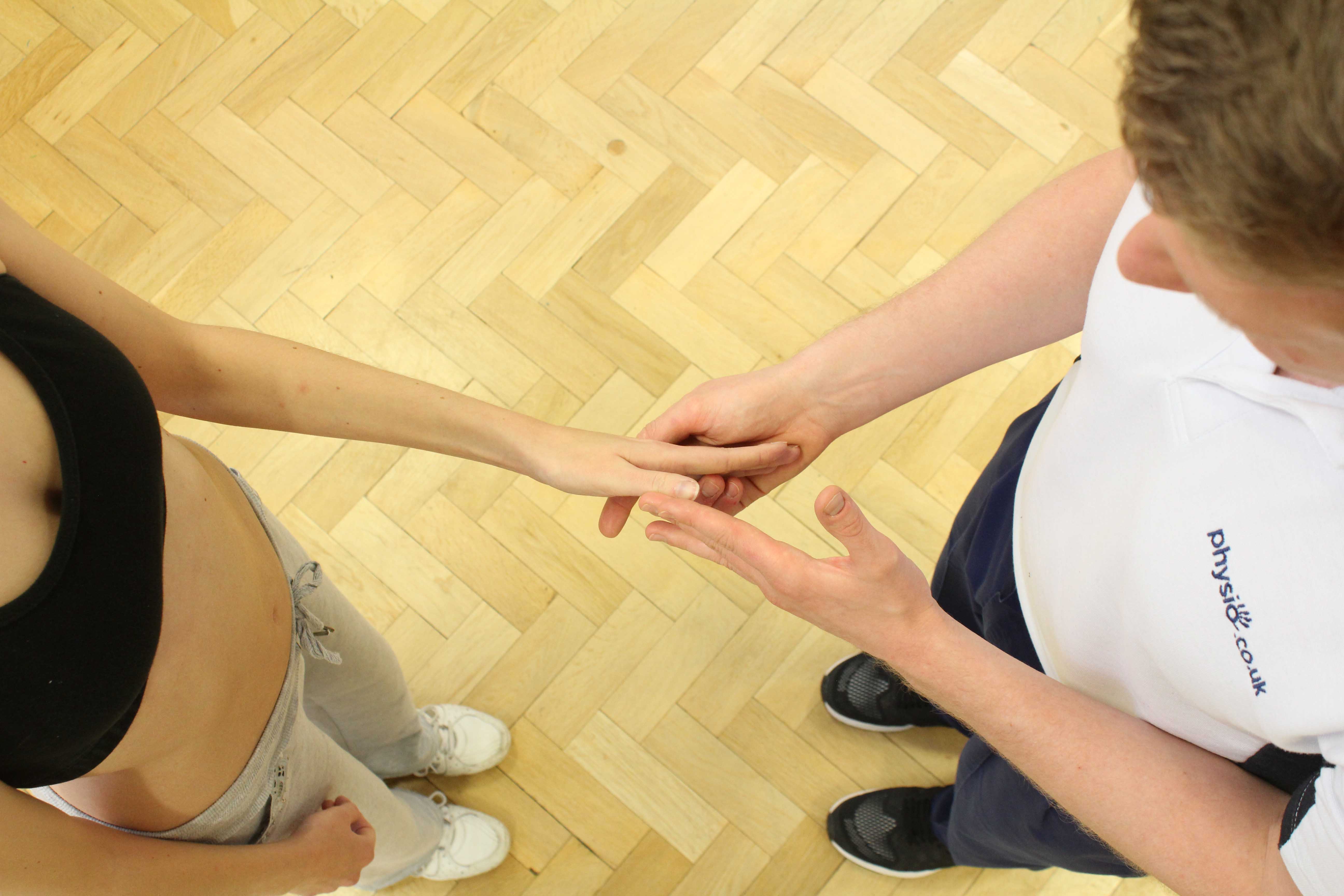What is scapholunate dissociation?
Scapholunate dissociation is when the small bones in the wrist (the scaphoid and the lunate) move excessively in relation to one another. Physiotherapy is an important part of scapholunate dissociation rehabilitation.
How does scapholunate dissociation happen?
Scapholunate dissociation results from an injury to the scapholunate interosseous ligament which joins the scaphoid and lunate wrist bones together. This ligament is often torn by a fall onto an outstretched hand. This can tear the ligament, causing the wrist bones to move apart or ‘dissociate’ from one another when the wrist is used.
 Above: Soft tissue massage and mobilisation of the carpal bones and the surrounding connective tissues
Above: Soft tissue massage and mobilisation of the carpal bones and the surrounding connective tissuesWhat are the symptoms of scapholunate dissociation?
Scapholunate dissociation normally causes pain in the wrist joint. This is typically felt in the back of the wrist when the wrist is moved or used. You may also feel the bones in the wrist moving excessively on one another and have some swelling on the back of your wrist. Other symptoms may include:
What should I do if I have scapholunate dissociation?
Scapholunate dissociation does not get better on its own. If you have or suspect that you have this injury you should consult your physiotherapist as a referral to an orthopaedic surgeon may be required.
An orthopaedic surgeon is very important in the initial treatment of scapholunate dissociation. They can diagnose your injury and the extent of the damage using an X-ray or CT scan to view the tissues in the wrist joint. From this they will be able to determine an appropriate treatment plan. Cases of scapholunate dissociation this often require surgery. Following surgery you may be required to wear a cast on your wrist.
 Above: Our physiotherapist treating a client following a disclocation of the wrist.
Above: Our physiotherapist treating a client following a disclocation of the wrist.Physiotherapy treatment for scapholunate dissociation.
Physiotherapy can start once your wrist has healed and the cast is removed. When a cast is applied, the joints within the cast become stiff and the muscles weaken. Although range of movement and strength will gradually return as you use your wrist, the return is slow and often not complete, predisposing you to other injuries. Physiotherapy can facilitate the return of your joint range of movement and muscle strength with a specific exercise programme to ensure that upon return to normal activity you are at minimal risk of further injury. Other physiotherapy options include:
- Massage
- Acupuncture
- Soft Tissue Treatment
- Taping
- Wax therapy
What shouldn’t I do if I have scapholunate dissociation?
If you have or suspect you have scapholunate dissociation, you should not ignore it or perform activities that increase your pain. These may lead to your injury getting worse and causing a delayed recovery.
Could there be any long-term effects from scapholunate dissociation?
Scapholunate dissociation does not heal by itself. In the majority of cases, surgery is required to repair the ligament which holds to the two wrist bones together. Following surgery, a cast is normally worn for a number of weeks to allow the repaired tissues to heal. With prompt treatment (within 3 weeks) and post operative physiotherapy the majority of patients make a full recovery.
To arrange a physiotherapy assessment call Physio.co.uk on 0330 088 7800 or book online.

 0330 088 7800
0330 088 7800

































